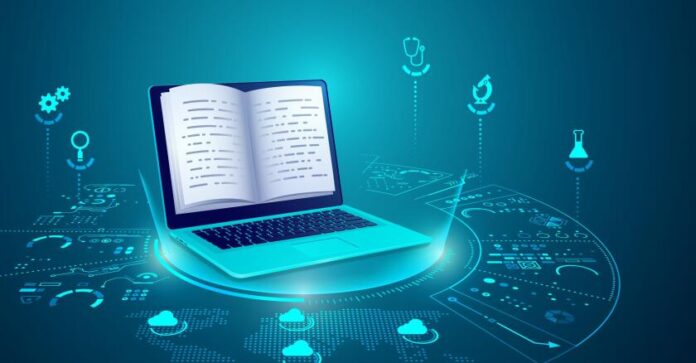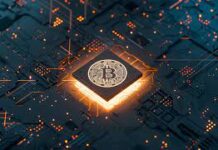Electricity enabled the generation of power on a large scale and its efficient distribution. With the development of power plants and electrical grids, electricity could be transmitted over long distances, reaching homes, businesses, and industries. This provided a reliable and convenient source of energy, replacing traditional methods such as manual labor, steam engines, and combustion engines, technology evolve a lot and made a huge change in our lives. The widespread availability of electricity transformed various aspects of daily life.
Prior to electricity, lighting was primarily achieved through candles, oil lamps, or gas lamps, which were dim, inconvenient, and potentially hazardous. Electricity brought about the invention of electric lighting, including incandescent bulbs and later fluorescent and LED lights. This revolutionized indoor and outdoor illumination, making it safer, brighter, and more accessible. Electric lighting extended working hours, improved productivity, and enhanced the quality of life.
Additionally, electricity played a crucial role in the industrial revolution. It powered machinery, motors, and equipment, transforming manufacturing processes and increasing productivity. With electricity, factories could operate more efficiently, leading to mass production, improved product quality, and cost reductions. Automation became possible, as electrical energy enabled the development of assembly lines and the integration of electrical controls, further revolutionizing industries and enabling economic growth.
The advent of electricity led to significant advancements in communication and information technology. The invention of the telegraph, telephone, and later the radio and television, relied on electrical power to transmit and receive signals.
Electricity powered the infrastructure for telecommunication networks, enabling faster and more reliable communication across long distances. This facilitated the exchange of information, the growth of media, and the development of the internet and digital technologies, transforming how people communicate, access knowledge, and interact with the world.
Electricity brought a wide range of appliances and devices into homes, greatly enhancing comfort and convenience. Electric refrigerators, washing machines, air conditioners, vacuum cleaners, and other household appliances automated tasks, reducing manual labor and improving the quality of life.
Electric heating and cooling systems made homes more comfortable, and electric cooking devices provided faster and safer methods for preparing food. The availability of electrical appliances revolutionized domestic life, freeing up time and improving living standards.
The introduction of electricity in transportation has been transformative. Electric trains, trams, and later electric cars have become viable alternatives to traditional fossil fuel-powered vehicles. Electric vehicles are environmentally friendly, quieter, and often more efficient. The ongoing development of electric mobility promises to reduce reliance on fossil fuels, combat climate change, and reshape transportation systems.
Telecommunication, the transmission of information over long distances, has been a transformative technological advancement that has had a profound impact on human lifestyle. Telecommunication allows for real-time communication over long distances.
Prior to its development, communication was limited to physical transportation or slow methods such as mail or telegrams. With telecommunication technologies like telephones, mobile phones, and internet-based communication platforms, people can connect instantly, irrespective of geographical boundaries. This has revolutionized interpersonal communication, business transactions, and global connectivity.
Telecommunication has connected people and communities across the globe. It has facilitated the exchange of information, ideas, and cultures, breaking down barriers and fostering a sense of interconnectedness. Through telecommunication, individuals can communicate with others from different countries, participate in international collaborations, and gain exposure to diverse perspectives. This has expanded opportunities for cultural exchange, cross-border trade, and global cooperation.
Telecommunication has transformed the business landscape. It enables remote collaboration, allowing teams to work together from different locations. Video conferencing, emails, and instant messaging have made it easier for businesses to communicate with clients, partners, and stakeholders worldwide.
E-commerce has flourished due to telecommunication, allowing people to buy and sell products online, irrespective of their physical location. Telecommunication has opened new markets, expanded customer reach, and fueled economic growth.
Telecommunication has revolutionized access to information and knowledge. The internet, enabled by telecommunication infrastructure, provides a vast repository of information on almost any subject. It has democratized access to educational resources, research materials, and news.
With telecommunication, individuals can access online courses, conduct research, and stay informed about global events. This has had a profound impact on education, research, and personal development.
Telecommunication has transformed social interactions and relationships. Social media platforms, messaging apps, and video calling services allow people to connect, share experiences, and maintain relationships regardless of distance.
Telecommunication has enabled people to stay connected with friends and family, even when physically apart. It has also facilitated the formation of online communities and support networks, enhancing social connections and fostering a sense of belonging.
Furthermore, telecommunication has played a crucial role in emergency situations. It enables quick and efficient communication during crises, enabling individuals to seek help, report emergencies, and receive timely information. Telecommunication technologies have been instrumental in disaster management, emergency response, and public safety efforts, helping to save lives and mitigate the impact of disasters.
Telecommunication has facilitated political and social movements. It has provided a platform for individuals and communities to voice their opinions, organize protests, and advocate for change. Social media and messaging apps have played a significant role in mobilizing people and spreading awareness about social and political issues. Telecommunication has empowered individuals to participate in public discourse, influencing political landscapes and promoting social justice.
The IoT enables devices and objects to connect and communicate with each other through the internet. This connectivity has led to the development of smart homes, where various devices and appliances can be controlled and monitored remotely. Smart thermostats, lighting systems, security cameras, and home assistants are examples of IoT-enabled devices that enhance convenience, energy efficiency, and security in households.
The IoT facilitates automation and improved efficiency in various domains. Industries can utilize IoT sensors and devices to monitor and optimize processes, leading to increased productivity, reduced waste, and cost savings. For example, in agriculture, IoT sensors can collect data on soil moisture levels, weather conditions, and crop health to optimize irrigation and enhance farming practices.
The IoT has made significant advancements in healthcare through the development of wearable devices and remote patient monitoring systems. Wearable fitness trackers, smartwatches, and health monitoring devices collect and transmit data to healthcare professionals, enabling remote patient monitoring, early detection of health issues, and personalized healthcare interventions. The IoT has the potential to improve healthcare outcomes, patient experiences, and the overall efficiency of healthcare systems.
The IoT has the potential to transform cities into smart cities by integrating various systems and services. IoT sensors and devices can monitor and manage traffic flow, parking, waste management, energy consumption, and environmental factors. This can lead to optimized resource utilization, reduced congestion, improved public safety, and enhanced sustainability in urban environments.
The IoT has revolutionized supply chain management and logistics by providing real-time visibility and tracking of goods and assets. IoT sensors can monitor shipments, track inventory levels, and optimize delivery routes, improving efficiency, reducing delays, and minimizing losses. This leads to streamlined operations, cost savings, and enhanced customer satisfaction.
The IoT enables personalized experiences and services based on individual preferences and context. IoT devices and systems collect and analyze user data to deliver tailored recommendations, personalized marketing, and customized services. This enhances user experiences in areas such as e-commerce, entertainment, and personalized healthcare.
The IoT plays a crucial role in environmental monitoring and conservation efforts. IoT sensors can collect data on air quality, water quality, and weather conditions in real-time, enabling better environmental management and response to natural disasters. This data-driven approach contributes to sustainability initiatives, environmental protection, and the preservation of natural resources.
In conclusion, electricity, telecommunication, and the Internet of Things have fundamentally transformed human lifestyle. They have improved convenience, efficiency, and connectivity, revolutionizing various aspects of our lives, from the way we communicate, work, and access information to how we interact with our environment and use resources. These technological advancements have significantly impacted society, economy, and individual well-being, and their influence continues to expand as new innovations emerge.
By: Sophia Lantzberg Tamayo
Write and Win: Participate in Creative writing Contest & International Essay Contest and win fabulous prizes.
















